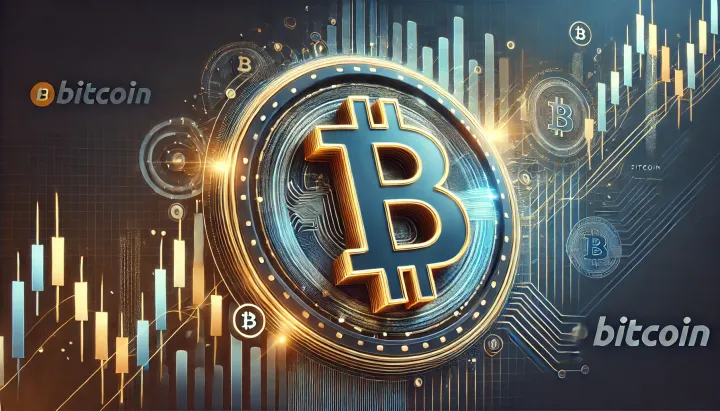Bitcoin’s Strategic Role: An Emerging Asset Class Amid U.S. Policy Shifts
The November 8, 2024 episode of the Swan Signal Live podcast features a roundtable discussion on the shifting landscape for Bitcoin in light of recent political and financial developments.

- My 'short take' notes summarize the content of podcast episodes; they do not necessarily reflect my own views.
- They contain (1) a summary of podcast content and (2) some speculative views on wider implications.
- Pay attention to broadcast dates (I often summarize older episodes)
- Some episodes I summarize may be sponsored: don't trust, verify, if the information you are looking for is to be used for decision-making.
Summary
The November 8, 2024 episode of the Swan Signal Live podcast features a roundtable discussion on Bitcoin's evolving status as it potentially enters a "super cycle" of growth. With U.S. policymakers displaying openness to Bitcoin, the cryptocurrency could achieve new legitimacy, potentially competing with gold as a reserve asset. This document assesses Bitcoin’s future against a backdrop of rising ETF participation, regulatory clarity, and geopolitical interest, while examining the potential risks tied to political alignment.
Take-Home Messages
- Institutional Investors: Enthusiastic about reduced career risks and regulatory support, which could integrate Bitcoin into traditional portfolios.
- Retail Investors: Positive about easy access through ETFs but concerned about ETF-driven centralization impacting Bitcoin’s decentralization.
- Policymakers and Government: See Bitcoin as a possible strategic reserve asset, though reliance on political support may introduce volatility.
- Global Central Banks: Eyeing Bitcoin adoption amid concerns of a competitive adoption race, with possible repercussions on financial stability.
Overview
The November 8, 2024 episode of the Swan Signal Live podcast features a roundtable discussion on a potential Bitcoin "super cycle," including the political and economic dynamics that may drive exponential growth. The panel explores Bitcoin’s path to "gold parity," the idea that Bitcoin could achieve a market value similar to gold, marking a new level of maturity for the asset. Panelists consider the role of Bitcoin-friendly U.S. policies that might reduce career risk for institutional investors, thereby fostering acceptance of Bitcoin in mainstream portfolios. Such policies, particularly the proposed Lummis bill, could set a precedent for Bitcoin as a strategic reserve asset in the U.S., with potential to catalyze similar movements globally.
The discussion also highlights the significance of Bitcoin ETFs, which simplify access for institutional and retail investors alike. This increase in accessibility is viewed as a critical step toward mainstream adoption, but panelists caution that ETF dominance could threaten Bitcoin’s decentralized ethos. As these products gain traction, Bitcoin could become a regular asset in brokerage accounts across the country, bridging traditional finance and digital assets.
Panelists further analyze the influence of Federal Reserve policies on Bitcoin, as rate changes can impact liquidity and market dynamics. While Bitcoin has traditionally been seen as an inflation hedge, its role in financial markets may continue to evolve alongside macroeconomic shifts. The panel underscores that the current alignment of political and economic factors represents an unprecedented opportunity for Bitcoin’s mainstream adoption.
Despite these positive indicators, the discussion also touches on the potential risks if Bitcoin’s growth remains heavily reliant on a supportive political climate. Shifts in legislative priorities could impact Bitcoin's standing, underscoring the need for careful consideration by both investors and policymakers.
Stakeholder Perspectives
- Institutional Investors: Enthusiastic about reduced career risks and regulatory support, which could integrate Bitcoin into traditional portfolios.
- Retail Investors: Positive about easy access through ETFs but concerned about ETF-driven centralization impacting Bitcoin’s decentralization.
- Policymakers and Government: See Bitcoin as a possible strategic reserve asset, though reliance on political support may introduce volatility.
- Global Central Banks: Eyeing Bitcoin adoption amid concerns of a competitive adoption race, with possible repercussions on financial stability.
Implications
Bitcoin’s acceptance as a U.S. strategic reserve asset could redefine its role on the global stage, challenging traditional reserve assets like gold and introducing a new standard in central bank portfolios. Should the U.S. adopt Bitcoin, this endorsement could spur other nations to follow, potentially driving unprecedented demand and influencing global financial policies. The broader implications of such adoption could involve shifts in exchange rates, trade relationships, and the stability of national currencies, particularly in economies that adopt Bitcoin later or struggle with inflation.
The expansion of Bitcoin ETFs normalizes Bitcoin as an asset accessible to a wide range of investors, including those traditionally unfamiliar with digital assets. However, as ETFs gain dominance, there is a risk of centralization, as large financial institutions may exert influence over Bitcoin’s market dynamics. This could lead to a divergence from Bitcoin’s decentralized roots, affecting its perception as a unique, decentralized digital currency.
Future Outlook
As the potential for a Bitcoin super cycle unfolds, policy alignment in the U.S. may be instrumental in ensuring that Bitcoin achieves stable growth while maintaining its value proposition as a decentralized asset. Legislative initiatives like the Lumis bill, if successful, could set a new precedent for Bitcoin’s role in national reserves, reshaping global financial standards. However, this trajectory is contingent upon continued political support, as fluctuations in policy could rapidly change Bitcoin's standing in both institutional and retail contexts.
The widespread availability of Bitcoin ETFs and retail access will likely increase adoption, with future growth driven by younger investors seeking alternatives to traditional assets. This demographic trend, coupled with institutional interest, creates a robust foundation for Bitcoin’s long-term growth. However, to maintain stability, it will be essential to address the risks of over-centralization and ensure that Bitcoin's original decentralized ethos endures in a world where it could become part of national reserves and institutional portfolios.
Information Gaps
- What are the economic and geopolitical impacts of the U.S. adopting Bitcoin as a strategic reserve asset? A strategic Bitcoin reserve in the U.S. could influence central banks globally. Assessing this impact would clarify the likely responses of other nations, helping to predict long-term demand.
- How would a central bank adoption race affect global financial stability? A competitive rush for Bitcoin reserves among central banks could alter exchange rates and introduce new financial stability concerns, requiring further analysis to prepare policy responses.
- How could ETF-dominated Bitcoin markets affect the asset’s decentralization and control? As ETFs bring Bitcoin into mainstream investment, evaluating their influence on Bitcoin’s governance and decentralization will help stakeholders balance growth with Bitcoin’s decentralized foundations.
- What are the potential risks of political dependencies on Bitcoin's role as a national or strategic asset? Bitcoin’s growth currently aligns with supportive political factions, but analyzing how shifts in political agendas could impact Bitcoin's stability will enhance its resilience as an asset.
- What institutional challenges remain for Bitcoin to be widely adopted in traditional portfolios? While regulatory clarity has helped reduce career risk, understanding the remaining institutional hurdles for Bitcoin can guide future policy and investment decisions, fostering broader adoption.
Broader Implications
Bitcoin as a Strategic Reserve Asset
As Bitcoin gains consideration as a U.S. strategic reserve, its role could disrupt traditional central bank reserve strategies, challenging assets like gold. A shift toward Bitcoin by central banks might accelerate international demand, raising exchange rate volatility and impacting global economic stability. For Bitcoin to function effectively in this role, policymakers must consider long-term implications for currency strength and trade balances.
Political Influence on Bitcoin’s Market Position
The recent alignment of political support may position Bitcoin as a legitimate financial asset, but reliance on political favor could introduce instability if policy priorities shift. A loss of bipartisan support for Bitcoin could hinder its trajectory, limiting adoption by institutions and nations alike. To mitigate this risk, Bitcoin advocates may need to push for more permanent regulatory frameworks that protect its independence from fluctuating political agendas.
Impact of ETFs on Bitcoin’s Decentralization
The proliferation of Bitcoin ETFs enhances accessibility but may centralize Bitcoin's market influence within a few financial entities, which could undermine its decentralized nature. With ETFs controlling large shares of Bitcoin, traditional finance could sway Bitcoin’s market behavior, potentially diverging from the principles that underpin Bitcoin’s appeal.
Bitcoin as a Hedge Against Inflation
As inflation concerns persist, Bitcoin’s potential as a digital hedge could draw more investors away from traditional assets. This shift might reframe Bitcoin’s role in financial markets, challenging long-established inflation hedges like gold and real estate. However, for Bitcoin to maintain this role, it must achieve further price stability, a critical factor for retaining investor confidence during market fluctuations.



Comments ()